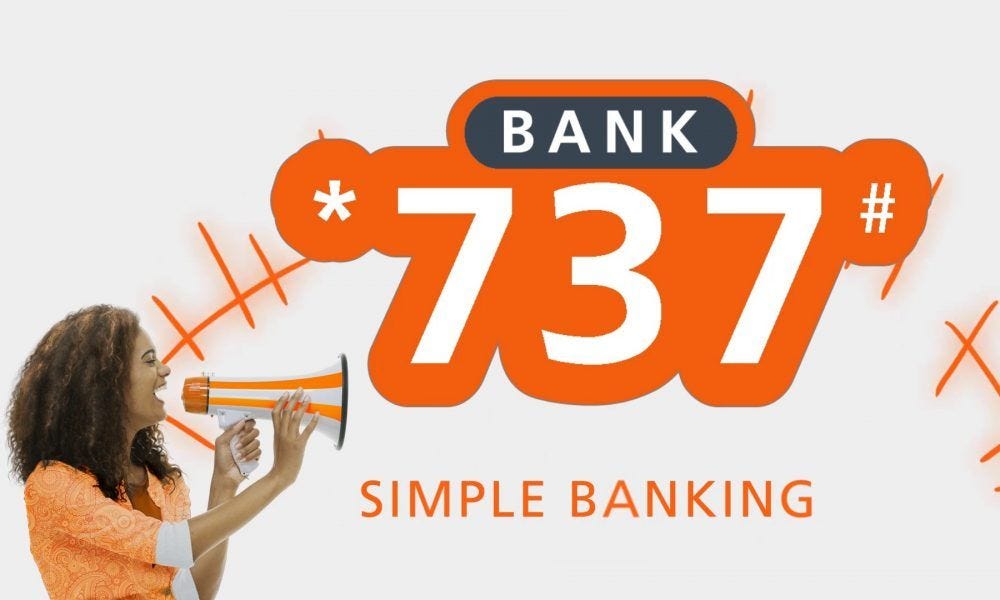Nigerian banking is premium, here's why you think it's bare minimum
How fintechs gave away the shop for free
Today’s (unscheduled) newsletter is written by Nnanna, who I’ve referenced in previous newsletters here and here. Also, subscribe to his Substack: Fintech is Easy. It’s really dope.

“If you want to know what lower-income groups will aspire to spend their money on in the future, look at what higher-income groups exclusively do today.” - Morgan Housel [The art and science of spending money]
This is the story of how Nigerian consumer fintechs, through good ol’ disruptive innovation, chipped away at traditional banking until premium services went from privilege to bare minimum.
Thanks to the internet, social media and VC-backed startups promising to democratise everything, these once-hidden luxuries available to a lucky few were no longer secrets. Having peeked behind the curtains, we plebeians wanted in. (This may or may not be related to my inability to get into Capital Club without a sponsor whenever I’m in Nigeria.)
The banking services you’re unimpressed by: relationship officers, premium lounges, CNN in branches, no queues, access to mint notes, fast transfers, zero balance accounts, and even internet banking—these features weren’t always standard; they were tiered perks reserved for ultra-high-net-worth clients who subsidised the rest of the banking system.
Everyone else waited in line, on hold, or forever. And no, this wasn’t uniquely a Nigerian thing.
The story goes that Adam Neumann, co-founder of WeWork, was rejected for a bank loan after raising $40 million in a Series B funding round. CEO of JPMorgan Chase Jamie Dimon allegedly stepped in personally to offer him a $100 million credit line before going on to lead the Series C fuding round.
The moral: prestige banking was not about innovation; it was about relationships, balance sheets, and status.
If you think cross-border transfers are slow, some people can send money from Nigeria to Canada in less than an hour via traditional banking rails.
So whenever anyone argues that “Nigerian banks don’t bank” because they haven’t been offered asset management or premium banking services, the odds are that the debater doesn’t meet the target criteria for these services.
Historically, banks divided customers into segments: retail, SME, priority, and private, and innovation was distributed accordingly. Services that worked for the lucky few eventually trickled down to the masses. For decades, we were mostly okay with it.
But a shift happened. We moved from a world where most people didn’t even know premium services existed, to one where people say that their favourite bank doesn’t offer the luxury they believe their status deserves.
It’s a bit like these viral TikToks from Chinese warehouses claiming that your £35,000 designer handbag costs like £2,000 without a logo. Nothing like making these purchases as your crash course in the importance of quality assurance, but I digress.
Have I called you old yet?
The Illusion of Free Luxury
“What if you didn’t have to earn prestige—what if it was the default?”
— Vlad Tenev, CEO of Robinhood
Traditional banks offered premium services because the model made sense. Wealthy customers who maintained high balances or were servicing expensive loans were rewarded with faster service and better support. The math and the risk made sense. Banks had an incentive to service and maintain these relationships with in-person attention.
As smartphone usage grew, a new class of customers emerged that wanted speed, self-service, and a clean UI interface. And they quickly learned that these services could be cheap or free.
Alat by Wema made it easy to open a bank account digitally (no more paper forms LOL)
Piggybank(PiggyVest) turned automated savings into a delightful web and app experience
Kuda ditched transfer and card issuing fees and set everyone free
Paylater(Carbon) offered instant loans with no collateral needed.
Barter provided global virtual card access to Nigerians in the middle of the currency crisis
Chipper Cash and Eversend provided multi-currency accounts and cross-border transactions
Buycoins made it easier and faster to buy crypto from your bank account not just cards or via funny websites
Cashestate(Risevest) and Bamboo simplified US asset investing
Clickatell made it possible to sell airtime digitally
Paystack made it easier and cheaper for businesses to receive money online (No more paying 150K upfront, and filling multiple forms online to connect to a payment gateway)
Mono and Okra developed the rails which power embedded finance and open banking
There are many other examples. These fintech startups stood on the shoulders of past giants, and existing infrastructure, to build a new kind of prestige: fast, sleek, available-to-everyone banking.
Each one unlocked something previously locked behind forms, queues, or social capital.
Thanks to fintech apps, the beginning of your banking journey now looks like this: download app → enter BVN → start.
Every business person knows that the first step is creating a first-class experience. The fintechs have done just that. The next step is extracting real and commensurate value from the experiences they’ve created.
How do we pay salaries?
VCs have done a great job of funding the demystification of privilege to everyday customers. As a default, we demand the premium experiences of Priority banking, Real-time notifications, 24/7 availability, and near-zero fees.
Legacy banks are being forced to rethink their strategies on UX and pricing. While the fintechs may win in the short term due to their speed and technological headstarts, the banks expect to win on pricing.
Startups have to balance innovation with building sustainable businesses. Banks can no longer treat these as add-ons. This is the new normal, and fintechs, regardless of profitability, set that bar.
You can give everyone the VIP experience, but someone has to foot the bill.
Final Thought
What used to be considered “VIP” banking is now just… banking. And while fintechs redefined the user experience, legacy banks, agents, NIBBS, and The Switch laid the groundwork.
Fintechs made premium banking feel normal; that’s their genius and their burden. The challenge ahead isn’t just to keep the experience alive, but to make sure the math adds up before the money runs out.
As I have previously Posited
The banks that offer these services exist: we have not rewarded them with our business en masse, and we all honestly know the status reasons that drive that choice.
Till the next downtime
Fintech is easy
A few Nice Links







